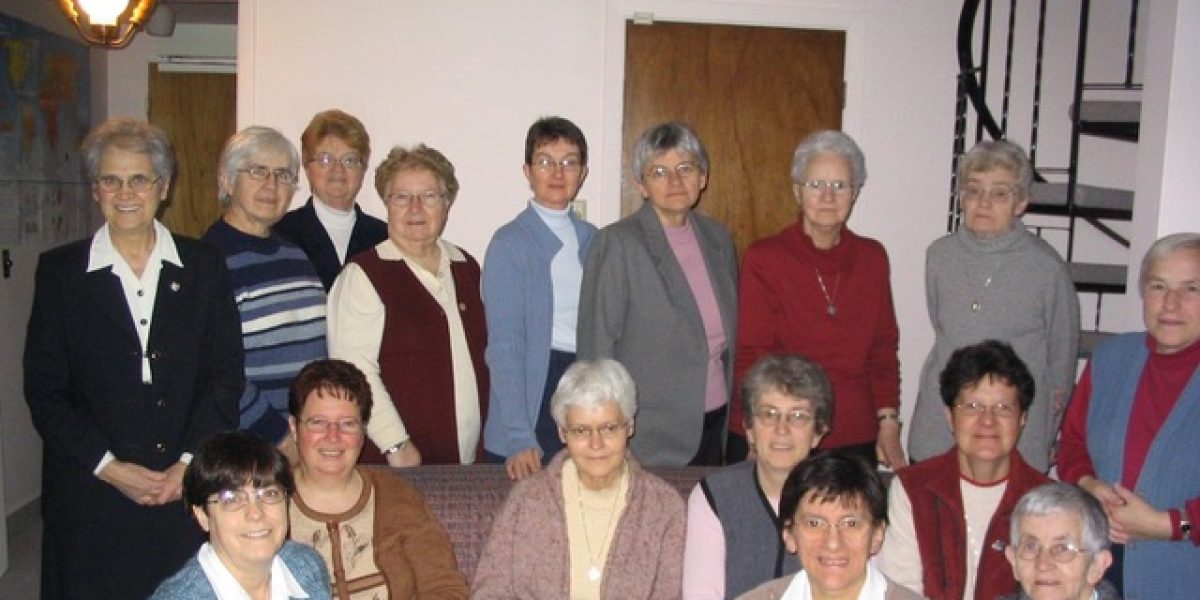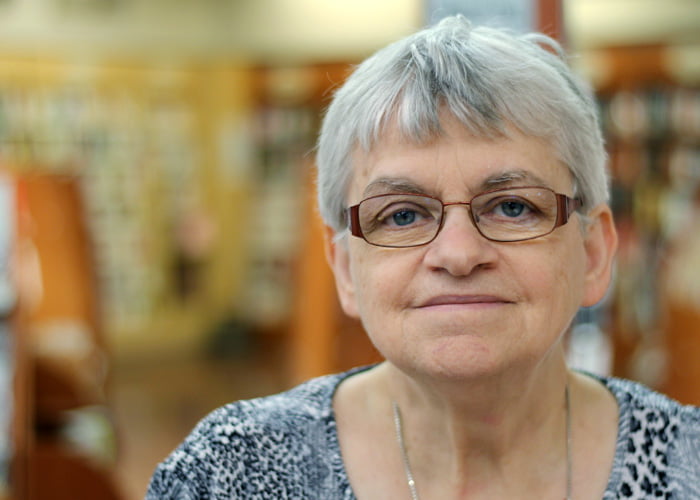Interview with Our Donors: The Daughters of St. Paul
25 October 2025|Joanna Kozakiewicz

The Daughters of Saint Paul are a Catholic religious congregation founded in Italy in 1915 by Father Giacomo (James) Alberione and Sister Tecla Merlo. Their goal is to evangelize through various means of communication, including books, radio, and the Internet.
The congregation is present in more than 51 countries, including Canada. In Quebec, the sisters are best known for their publishing house, Pauline bookstores, and their involvement in various communications organizations. The sisters are known to collaborate with various social and religious organizations. The congregation is also on our list of donors and supporters.
On their website, we can read the vision of their founder:
“Blessed Alberione saw the Daughters of St. Paul as consecrated women, immersed in the culture of communications, dedicated to evangelization and capable of using today’s languages to speak about Christ to the women and men of our time. ”
Among the Daughters of St-Paul, Sister Jeanne Lemire agreed to answer a few questions.
JRS Canada: Why are the Daughters of St. Paul involved in the cause of refugees, migrants, and forcibly displaced persons?
Sister Jeanne Lemire :
Since we have grown up in the congregation through the demands of the word of God, we cannot not be interested in the cause of migrants.
Among other things, we are very focused on the words of the Gospel of Matthew 25:
“Whatever you do to the least of my brothers and sisters, you do to me.”
We also realize that more and more people in our society are vulnerable, whether they are migrants or refugees. Meanwhile, it seems that our governments are beginning to have had enough.
JRS Canada: How does supporting the refugee cause fit into your charism?
Sister Jeanne Lemire:
As our charism is expressed in the world of communication information and publishing, we have never hesitated to publish and raise awareness about the world of migrants.
Whether it be the apostolic exhortations of recent popes or the writings of bishops, archbishops, or people who have been involved in helping to improve the situation of migrants, this is something that has always been of primary interest to us.
JRS Canada: What is the responsibility of a Daughter of St. Paul towards refugees?
Sister Jeanne Lemire:
We just had a general chapter [A supreme assembly of representatives of a religious congregation, which meets periodically to discuss important matters and make decisions for the future of the order]. Over the past 12 years, there has been a great deal of awareness. Now that the general assembly is over, there are two things I would like to share with you:
1.“Among other things, sharing with lay people, who must increasingly become allies in our mission. In a spirit of synodality, religious and lay people together wish to open themselves to listening and dialogue with everyone: the poor, the vulnerable, young people, professionals, migrants, refugees…”
2. Another recurring theme was welcoming fragility, first our own and then that of others, which is a gift to be received. “We hear loud and clear the cry of migrants, refugees, victims of conflict and suffering on earth. These are voices calling us to concrete responses.”
It is always difficult to say what we will actually be able to achieve, but I remain convinced that actions will be taken that are sustainable and will bear concrete fruits.
JRS Canada: What changes would you like to see in the world of refugees, forcibly displaced persons, and migrants?
Sister Jeanne Lemire :
There is the religious world and there is the political world. They should work together, but unfortunately that is not always the case. However, I find that there is an awakening happening on both sides.
When we look at the political world, things are being done, but I don’t think it’s always a priority. When the United Nations talks to us about urgent situations, some countries are more open to the idea, but I think we’re still largely at the level of rhetoric.
The United Nations, or UNICEF, and major international humanitarian organizations keep us informed, but concrete changes are not evident. It remains a complex issue.
It’s appalling to see people drowning and boats being turned back.
It’s not right, but at the same time, we wonder what countries could do to enable these people to come and live here and be comfortable enough in their homes to want to stay here too. Because for migrants, it’s not always easy to arrive in other countries. It gets them out of a situation of war or exploitation, but it’s not always easy after that.

Sr. Jeanne Lemire. Photo credit: Daughters of St. Paul
As much as we have a responsibility to either learn about their situation or take their side, it’s difficult to take actions that will truly promote change.
There is more openness towards groups seeking asylum, but we are in a difficult situation. We cannot help everyone either.
In our circles, there are situations that we need to discern, because having a certain number of migrants does not mean that things will go badly for us. We are talking about people who are capable and can work to promote our country.
What could also be done in our countries, in my opinion, in terms of change, is that the response to applications for those seeking asylum or to be accepted in the country could be accelerated.
Sometimes I think it’s as if we’re deliberately trying to discourage them, as if we’re saying, “They’ll get fed up and give up .”
But that’s not right. We’re hurting vulnerable people even more.
Unless we have completely wrong information, it seems to me that our entrepreneurs here are also asking for workers, and that laws are being revised to reduce the number of migrants on the pretext that we have more unemployed people. But there are migrants who meet very real needs here too.
JRS Canada: What would you say to those who oppose this cause?
Sister Jeanne Lemire:
I strongly believe that migrants add value to the countries that receive them because they are willing to get involved. We’re not talking about freeloaders here, we’re talking about people who are willing to take steps to learn the language, get to know the culture, and who want to improve their lot in life.
I think we cannot be blind to this. When we look at the Gospel, it becomes compelling for Christians to exercise discernment.
JRS Canada: What encouragement do you have for donors (or other religious communities) who are unsure whether they should support us this year?
Sister Jeanne Lemire:
We must be ready to encourage those who can do so. I think that there are still many religious communities that are making great efforts to help.
We must try to learn as much as we can and seek our sources of information at different levels. Just because a political party says we shouldn’t continue, that doesn’t mean we have to blindly endorse it.
When we refer directly to the word of God in the Gospel, if we manage to engage in conversation as the Synod invites us to do, it seems to me that we will also be encouraged to move forward.
We must not neglect the gifts or participation we can offer. When we have the opportunity, we must be able to say what we think and be able to say that we cannot give up on this cause.



